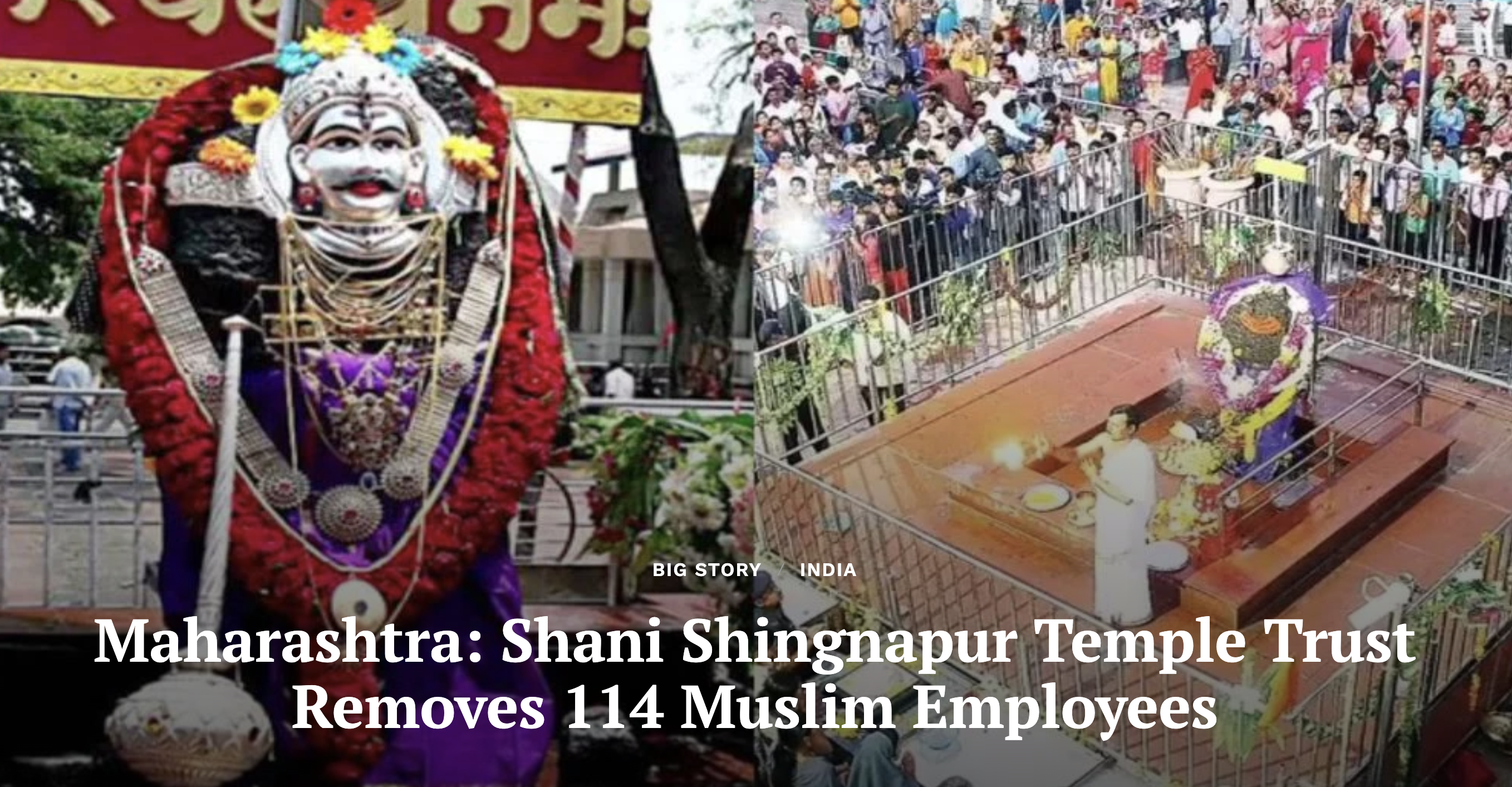
NEW DELHI — The famous Shani Shingnapur Temple in Maharashtra’s Ahmednagar district, long regarded as a symbol of communal harmony and Ganga-Jamuni tehzeeb (shared Hindu-Muslim cultural heritage), has become the centre of controversy. Recently, the temple trust took a drastic step to remove 167 staff members, including 114 Muslim employees who served in various roles within the temple premises. This decision has stirred widespread discussion and deep concerns about religious discrimination against Muslims in a place historically known for coexistence.
For decades, Shani Shingnapur Temple was known not only for the millions of devotees who thronged to seek blessings from Lord Shani but also for its inclusive spirit. Hindu and Muslim workers jointly maintained the temple’s daily operations, reflecting the pluralistic ethos of Indian society. The coexistence of diverse faiths at this revered site was often hailed as an example of unity beyond religion.
However, the recent decision by the temple trust to suspend these employees has shattered this image. According to official statements, the trust cited “disciplinary lapses” and “irregularities” as reasons behind the removal of the staff. Yet, community leaders and rights activists argue that this is a thin veil to mask a targeted effort to exclude Muslims under pressure from certain Hindu groups demanding a homogenised religious space.
The Shani Shingnapur temple trust issued a notification on Friday suspending 167 employees across departments, including those responsible for cleaning, security, maintenance, and other essential services. Of these, 114 were Muslims who had been part of the temple workforce for years.
“The trust’s official explanation is that these removals are due to a lack of adherence to rules and poor performance,” said a temple spokesperson, who wished to remain anonymous. “There is no question of any religious bias. We maintain strict discipline and the decision is purely administrative.”
However, insiders and local observers reveal a different story. Sources close to the temple trust claim that growing pressure from certain Hindu groups, who have been demanding the removal of Muslim staff citing ‘religious purity’, played a significant role behind the scenes.
An Ahmednagar resident and social activist, Sameer Ansari, expressed his concerns: “This temple stood as a rare example of communal harmony in a country increasingly divided on religious lines. Removing Muslim workers en masse sends a dangerous message that Muslims are no longer welcome even in places they served faithfully for years.”
This story was originally published in clarionindia.net. Read the full story here.

